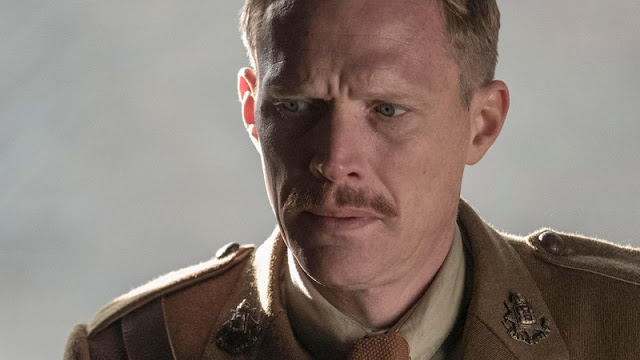Journey's End: Film Review
Cast: Sam Claflin, Paul Bettany, Asa Butterfield, Toby Hadoke, Robert Glenister
Director: Saul Dibb
Released in New Zealand in time for the 100th anniversary of the Armistice, Saul Dibb's adaptation of RC Sheriff's Journey's End is a harrowing and simple tale of British life in the trenches.
With a stalemate affecting World War I in the spring of 1918, the film's four day period takes in the grim surroundings of Saint-Quentin. As it begins, reality hangs heavily in the air around the trenches; soldiers are wearied by the efforts, fear rules the roost as the inevitable lies ahead and soldiers try to prepare for a push to win the war.
Into this mix comes Asa Butterfield's young Second Lieutenant Raleigh, who uses a family connection to end up on the front line - much to the horror of his friend, Captain Stanhope (Claflin, in a nuanced turn as the company leader).
With word coming from on high that there is to be a big push, the deadline to events on Thursday March 21st, 1918 hang dangerously close at hand, weighing closely on the mind of the borderline alcoholic Stanhope and his Number 2, Lieutenant Osbourne (a wonderfully cast Paul Bettany, who delivers empathy and growing horror with considerable calm and aplomb).
Journey's End is grim in parts.
Through claustrophobic close-ups in the trenches, through to an earthy muddy brown palette, Dibb's adaptation (the fifth of the play since 1928's first with Laurence Olivier) captures the horror of the war, the deteriorating mental strength of those facing catastrophe and death every day, and also the inanity of the conversations masking the truth of what's to come amid the tension.
While the film rarely transcends its play roots throughout visually, the power lies in the restraint and poignancy of the dialogue. Moments of discussion about the most yellow of soups, and the theft of tinned apricots hang next to a truly tear-jerking letter from Osbourne, lamenting the frailty of life, and the undelivered promise of youth caught in the conflict. It's powerful, damning stuff which is more evocative than any war scenes could create.
With a mournful cello OST punctuating the proceedings, Journey's End is a potent mix of humanity and horror, wonderfully acted by a restrained cast, and pulled together by a director aware of what's best needed to sell it.
It is, entirely without a doubt, thanks to one final set piece, a film that leaves you more grateful than you'd realise - and more profoundly moved than a fifth iteration of a piece deserves to.






%20&%20Edith%20Poor%20(Lizzie%20Moyle)_%C2%A9BBCS%20&%20Bunya%20Entertainment.jpg)
No comments:
Post a Comment